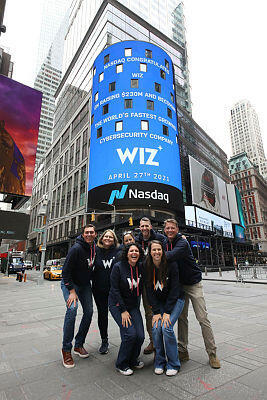Getting your Trinity Audio player ready...
Avoid excessive optimism—this is the central takeaway from the special 2024 high-tech report published on Monday by the RISE Institute, led by Eugene Kandel.
"Startup investments are stabilizing at a relatively low rate of $2–2.5 billion per quarter, while the number of active investors continues to decline, and employment data signals prolonged stagnation in high-tech workforce numbers. Additionally, a new trend emerged in 2024: centralization favoring the cybersecurity sector," explained the authors of the report.
At first glance, the overall picture of 2024 in high-tech appears decent, especially considering the ongoing war. Capital raised reached $9.7 billion, up from $8.7 billion in 2023. In retrospect, the figure will likely edge closer to $10 billion, as many companies today avoid reporting their initial funding rounds.
The trend in Israel aligns with stateside developments over the past year and even surpasses Europe, where startup funding has declined. However, the numbers reveal a strong bias toward very large funding rounds, primarily dominated by cybersecurity companies. The ten largest investment rounds accounted for one-third of all capital raised, with 42% of the total funding flowing into cybersecurity firms.
In fact, the entire $1 billion gap between 2023 and 2024 can be attributed to the massive $1 billion funding round by cybersecurity giant WIZ, which was conducted at a valuation of $12 billion.
The RISE report also highlights the $1 billion funding round by SAFE, an artificial intelligence company founded by Israeli-born Ilya Sutskever. However, the report clarifies that SAFE is not an Israeli company but rather one with offices in Israel, contrasting with IVC Research's decision to include this funding in its Q3 summary.
RISE expresses significant concern about the ongoing decline in the number of funding rounds, a trend that suggests fewer new startups are being established in Israel. There is also a noticeable drop in foreign investor activity, with the total number of rounds in 2024 reaching just 1,087—a five-year low.
3 View gallery


Israeli cybersecurity companies are retaining the edge in the cybersecurity market
(Photo: Danielle Goldfarb)
Foreign investor participation in Israel fell by 16% this year. However, it remains unclear whether this decline stems from a deliberate decision to avoid investing in Israel or from challenges faced by funds themselves, which have struggled to secure new capital in recent years.
What is clear is that investors from Europe and Asia are becoming less active in Israel, with 80% of foreign investors now originating from the U.S. RISE conducted a targeted analysis of the 20 most active funds to isolate the role of limited capital, finding that some funds avoided investing in Israel over the past year. Of these funds—which include prominent names such as Andreessen Horowitz, Sequoia, and General Catalyst—15 had previously invested in Israel, but only 8 made investments in 2024.
Interestingly, Sequoia, one of the world's largest venture capital funds, significantly increased its activity in Israel, even reopening its local office. Sequoia also exemplifies the centralization trend in fundraising, participating in rounds that accounted for 24% of all capital raised. Even during the boom years, when Insight Partners and Tiger Global invested almost daily, their share of the capital raised never exceeded 16%.
Get the Ynetnews app on your smartphone: Google Play: https://bit.ly/4eJ37pE | Apple App Store: https://bit.ly/3ZL7iNv
Looking ahead, RISE points to the growing defense-tech sector as a promising area but cautions that its numbers remain relatively small. Meanwhile, Israel's high-tech industry is becoming overly reliant on the cybersecurity and enterprise software sectors, while other sectors struggle to advance.
Kandel also expressed concern over Israel's declining position in global artificial intelligence rankings: "There is no justification for government changes to halt the national AI plan, which is unrelated to political debates and aims to propel Israel forward in one of the global revolutions that will only intensify in the coming years." The establishment of a national AI headquarters could be a positive step in the right direction, but the true test will lie in its execution.
"After the instability that began in 2023 with the judicial overhaul and the war, the primary recommendation is for the Israeli government to present a vision and strategy that will inspire hope among investors and entrepreneurs, promote responsible economic management, uphold democratic and liberal values, and minimize international isolation," recommends Kandel, who previously served as chairman of the National Economic Council in the Prime Minister's Office and was closely associated with Prime Minister Benjamin Netanyahu.
"The main factor deterring foreign investors from Israeli high-tech is the high perceived risk stemming from the security situation and economic and political uncertainties. However, it is crucial to take every possible step to encourage these investors and remove barriers."
RISE advises focusing on targeted efforts to engage and persuade critical global investors who are not currently investing in Israel, particularly corporate investment funds, to begin doing so.
The report also addresses Israel's brain drain over the past year, recommending the creation and implementation of an effective program to attract and retain talent in Israel. "Such a program should not focus solely on tax benefits but take a holistic approach to all factors that attract researchers and experts, including research grants and access to infrastructure," the report concludes.



